Pcos - Journey Of A Woman
Jan 10, 2019 • 64 views
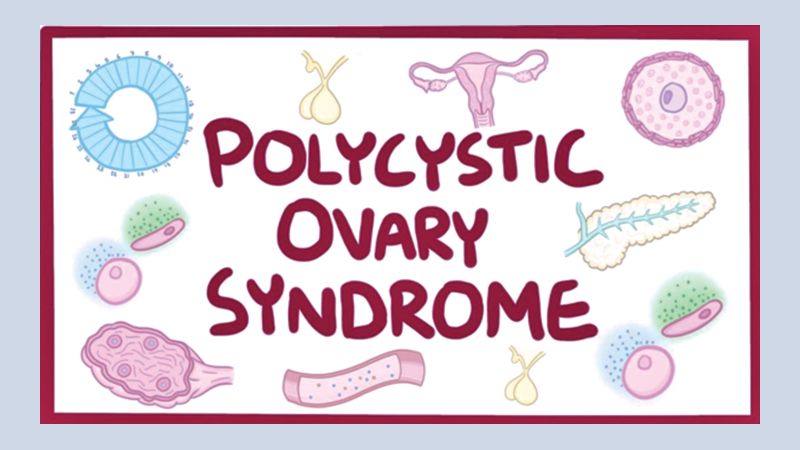
There is a certain disease which affects women. Women experience unique health issues and conditions from pregnancy and menopause to gynaecological conditions. Some conditions affect women primarily or more severely.
Whenever there is an issue related to women, no one is interested. They think it's just a small problem not of any importance. There is a culture of silence, shame, an embarrassment to discuss regarding women health issues. Women have to hide their issues and suffer in dark silence.
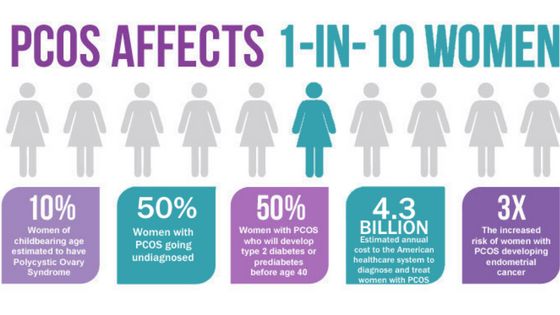
A common, under-recognized and a complex endocrine gland issue is PCO. Polycystic Ovary Syndrome (PCOS) is a condition that affects a woman's hormone levels and metabolism problems that affect their health. It mostly affects women during their childbearing years (ages 15 to 44). Between 2.2 and 26.7 % of women in this age group have PCOS.
Many women have PCOS but don’t know it. In one study, up to 70 per cent of women with PCOS had not been diagnosed.
Symptoms

Acne
Overweight and obesity
Excessive hair growth on the face, nipple area, chest, lower abdomen, and thighs
Thinning hair or bald spots
Dark patches of skin
Anxiety or depression
Pelvic pain
Causes :
The cause of polycystic ovary syndrome isn't well understood but may involve a combination of genetic and environmental factors.
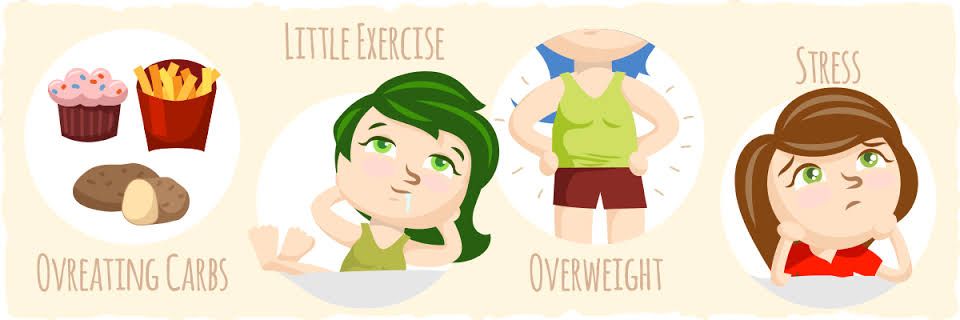
PCOS seems to be heredity, meaning that it runs in families. You are more likely to have PCOS if your mother or sister has PCOS.
Many women with PCOS have insulin resistance, especially those who have overweight or obesity, have unhealthy eating habits, do not get enough physical activity, and have a family history of diabetes (usually type 2 diabetes). Over time, insulin resistance can lead to type 2 diabetes.
Women with PCOS have more androgens than normal. Higher than normal androgen levels in women can prevent the ovaries from releasing an egg (ovulation) during each menstrual cycle and can cause extra hair growth and acne, two signs of PCOS.
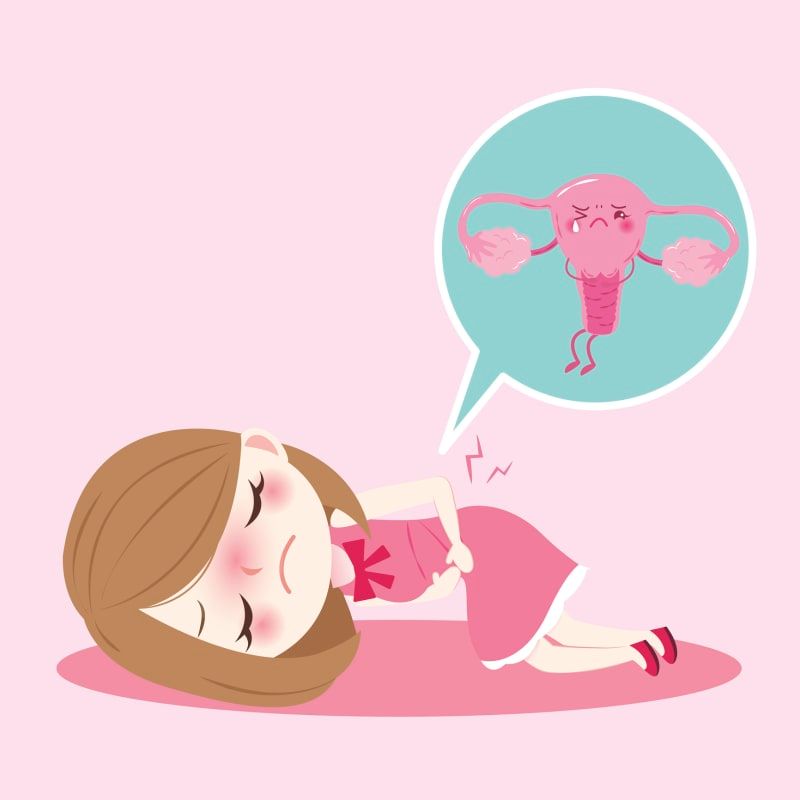
Diagnosis: Gynaecologist will ask you about your symptoms and will look for the signs of PCOS. He or she will give you a full physical examination, which will most likely include a pelvic exam. Blood tests that measure hormone levels can also help. An ultrasound exam can show if you have cysts on your ovaries.
Complications of PCOS can include:
Infertility
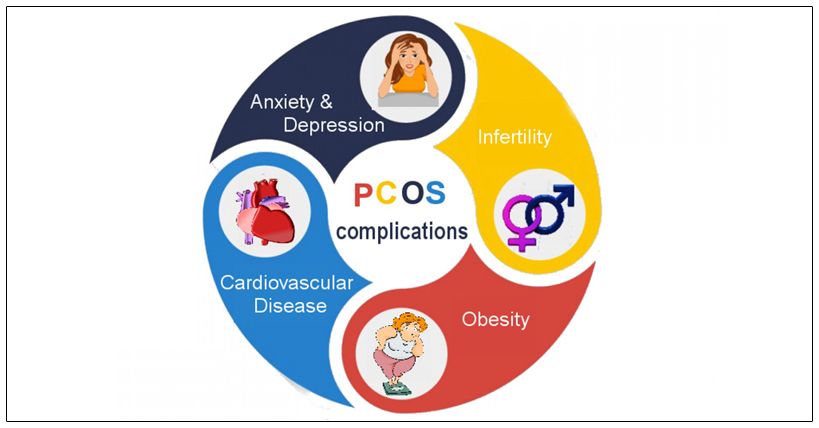
Gestational diabetes or pregnancy-induced high blood pressure
Miscarriage or premature birth
Nonalcoholic steatohepatitis — a severe liver inflammation caused by fat accumulation in the liver
Metabolic syndrome — a cluster of conditions including high blood pressure, high blood sugar, and abnormal cholesterol or triglyceride levels that significantly increase your risk of cardiovascular disease
Type 2 diabetes or prediabetes
Sleep apnea
Depression, anxiety and eating disorders
Abnormal uterine bleeding
Cancer of the uterine lining (endometrial cancer)
Obesity is associated with PCOS and can worsen complications of the disorder.
Treatment: Treatment for PCOS focuses on managing the symptoms. You might need to lose weight. Eating healthy and getting plenty of exercises can help manage PCOS. Medicine can help regulate your menstrual cycle and reduce abnormal hair growth and acne.
There is no way to prevent polycystic ovary syndrome. There is also no cure. However, the symptoms of PCOS can be measured through lifestyle changes and medication. Talk to your doctor about how to best manage your symptoms.
